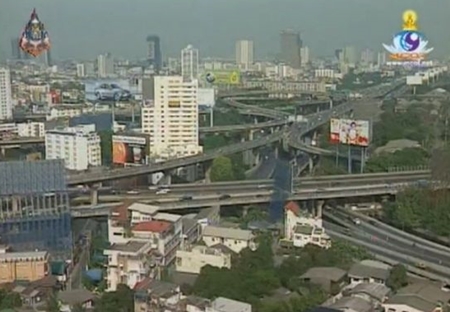BANGKOK, Aug 6 – Thailand’s cabinet today approved a new stimulus package in response to the country’s continued economic downturn and a last-ditch attempt to maintain Thailand’s economic growth at 4.5 per cent this year.
The package includes four major elements targeting consumption in the private sector, private investment, public sector spending and exports.

One measure offers tax incentives to private businesses organising seminars or workshops for their Thailand-based employees.
Business operators are entitled to double their pre-taxation expenses for seminar rooms, lodgings, management, transportation, food, trainers and equipment for the 2013 and 2014 tax years.
On incentives for the tourism business, the package authorises operators to purchase or repair property, equipment, decorative items, and furniture but excluding vehicles with a 50-per cent deductible fee on depreciation costs for total assets in the first year and gradual five-year payment for the remaining amount.
Investments in the 2013 and 2014 taxation years are entitled to the incentives.
Investors wanting to manufacture eco cars can apply for the second phase of privileges from the Board of Investment. The privileges apply to existing and newly-applied investors.
The private investment stimulus also includes the food processing and energy industries by providing more lenient regulations for opening factories for food, sugar and ethanol processing and manufacturing.
Small- and medium-size entrepreneurs will be given easier accessibility to loans under the Portfolio Guarantee Scheme of the Thai Credit Guarantee Corporation (TCG) within a budget of Bt240 billion, and the Productivity Improvement Loan of the SME Bank within a budget of Bt20 billion.
Smaller investors will be given easier access to loans without having to rely on money lenders.
Regarding spending in the public sector, the government will speed up spending in the 2013 fiscal year particularly in rural development projects which have been totally allocated Bt18.090 billion in this budget year.
As of July 26, only Bt7.817 billion, or 43.2 per cent of the total allocated budget, was spent.
Various government-operated funds including the Village and Urban Community Fund, SML Fund, Sufficient Economy Fund, Women’s Development Fund, Self-Reliance Fund and Energy Conversation Fund should quickly inject money into the economic system.
Government agencies are encouraged to speed up their spending on seminars nationwide so that they spend at least 50 per cent of the earmarked budget.
On export promotion, the economic stimulus calls for expansion of Thailand’s exports to neighbouring countries of Cambodia, Laos, Myanmar, Vietnam and various regions in China where market potentials are high and the Thai currency has been widely accepted.
Regulations of cash possession across the border should be relaxed to encourage border trade while the Export-Import Bank of Thailand (EXIM Bank) should be proactive in minimising risk and providing financial liquidity to private operators in their trade, service and investment in neighbouring countries.
On overseas tourism promotion, multiple-visa entry should be enforced before this year’s high season and Thailand should be upgraded as a shopping attraction for foreign tourists by giving tax exemption to items popular among tourists without negatively impacting Thai manufacturers.




